
Artemisia Absinthium, Wormwood - 0.5 kg Seeds
(MRP Inclusive of all taxes)
- Shipping ₹79 for entire order
- Dispatch in 2-3 weeks
- Country of origin: India

(MRP Inclusive of all taxes)
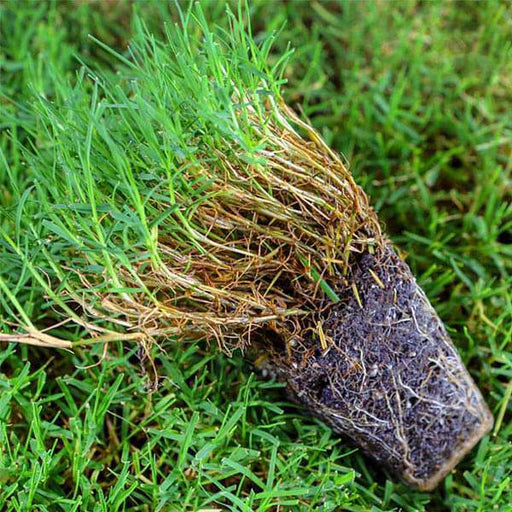
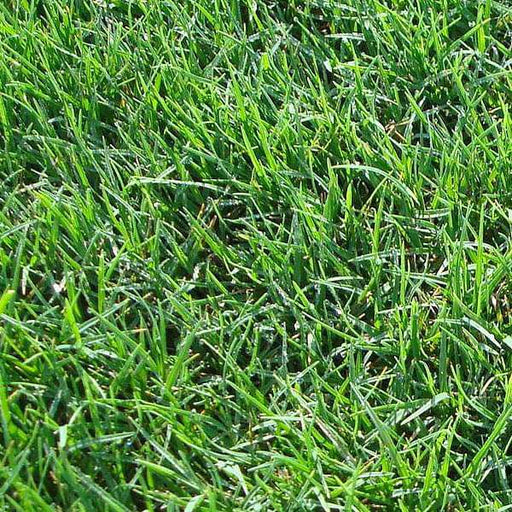 Save 15%
Save 15%
Bermuda Lawn Grass - 0.5 kg Seeds Bermuda Lawn Grass is a popular choice for homeowners and landscapers alike, known for its lush green ap...
View full details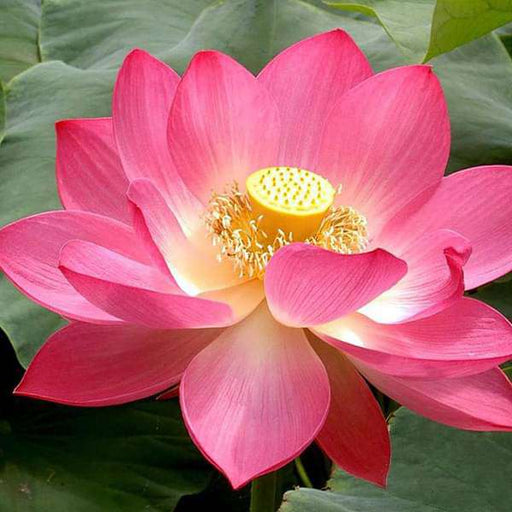 Save 15%
Save 15%
Nelumbo Nucifera, Lotus (Mix Colors) - 0.5 kg Seeds Discover the enchanting beauty of Nelumbo Nucifera, commonly known as the Lotus, with ...
View full details Save 15%
Save 15%
Roystonea Regia, Royal Palm - 0.5 kg Seeds The Roystonea Regia, commonly known as the Royal Palm, is a majestic tropical tree native to th...
View full details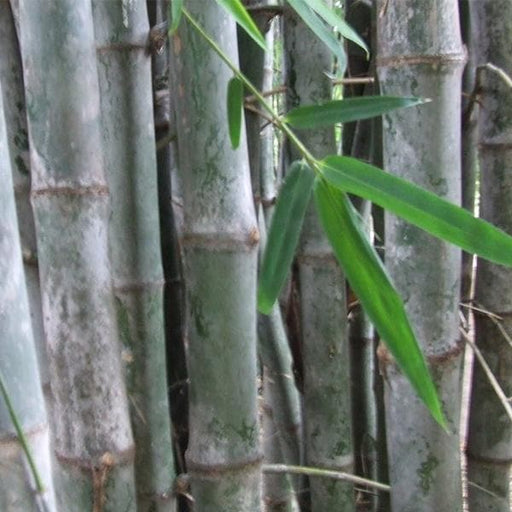
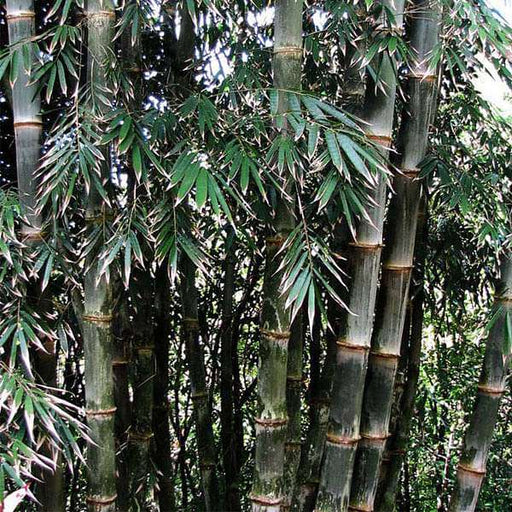 Save 15%
Save 15%
Dendrocalamus Strictus, Solid Bamboo - 0.5 kg Seeds Dendrocalamus Strictus, commonly known as solid bamboo, is a remarkable species renown...
View full details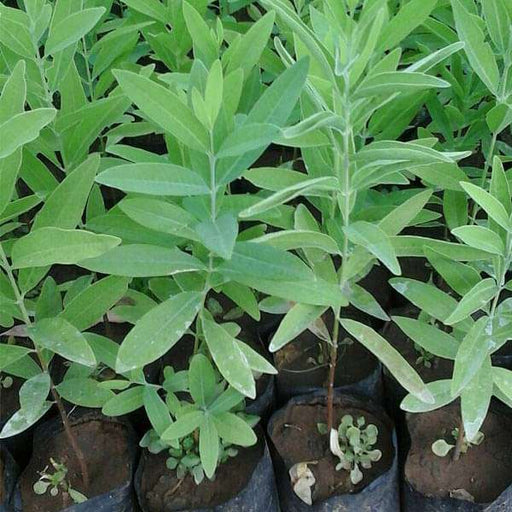 Save 15%
Save 15%
Sandal Wood White, Chandan White - 0.5 kg Seeds Discover the enchanting world of Sandal Wood White (Chandan White) with our premium 0.5 kg...
View full details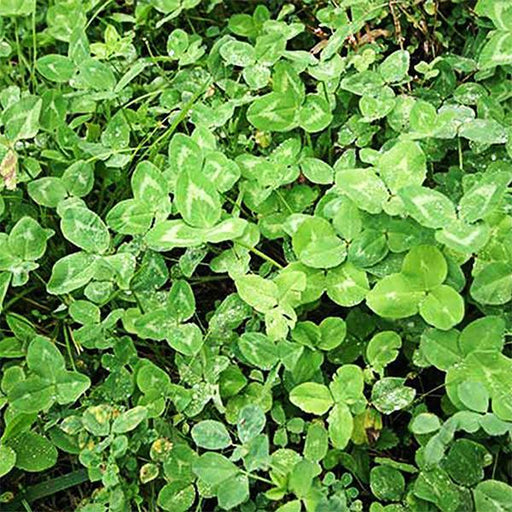 Save 15%
Save 15%
Durana White Clover - 0.5 kg Seeds Durana White Clover (Trifolium repens) is a premium forage legume known for its exceptional adaptabilit...
View full details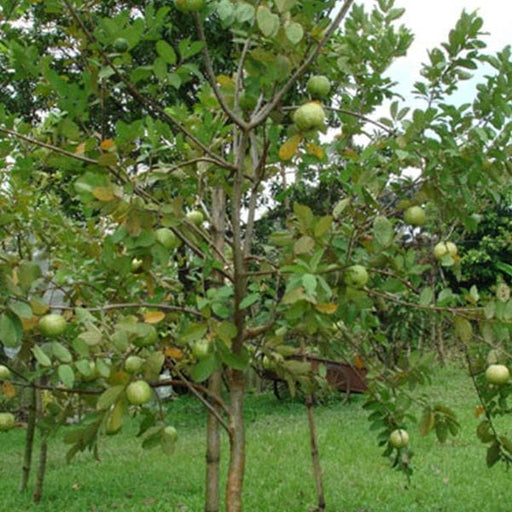
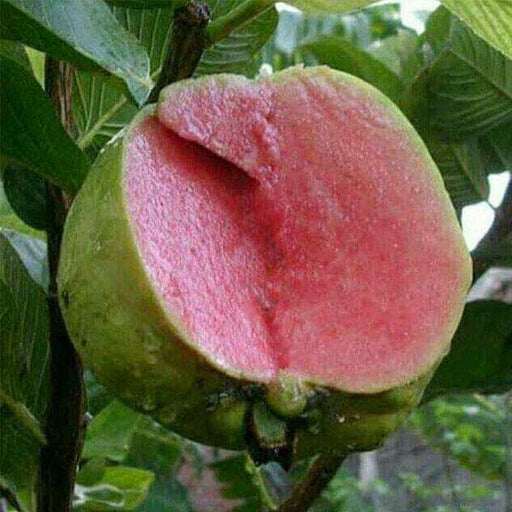 Save 15%
Save 15%
Guava, Amrud Allahabadi - 0.5 kg Seeds Discover the delightful taste of Amrud Allahabadi, a premium variety of guava known for its sweet, ...
View full details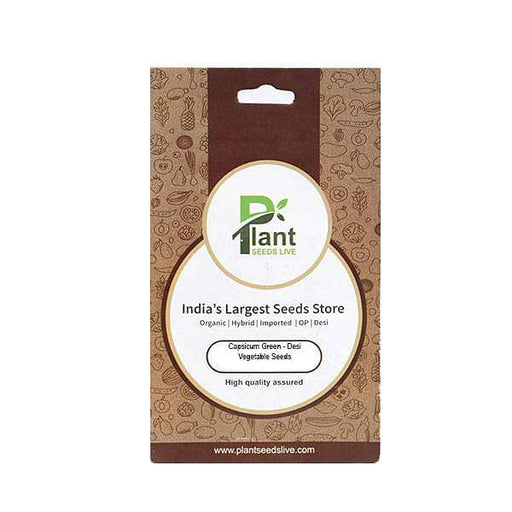
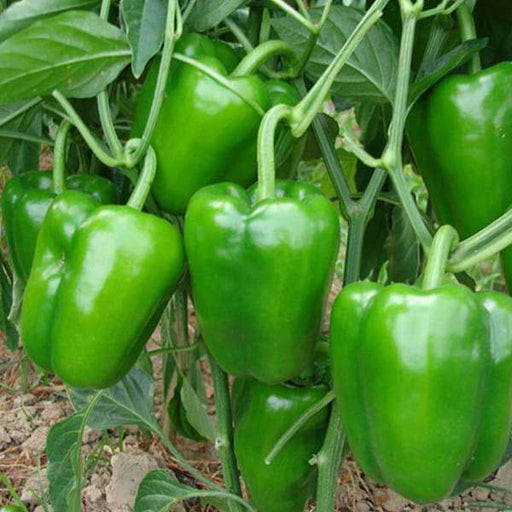 Save 25%
Save 25%
Capsicum Green - Desi Vegetable Seeds Capsicum Green, also known as bell pepper, is a vibrant and nutritious addition to your garden. Thes...
View full details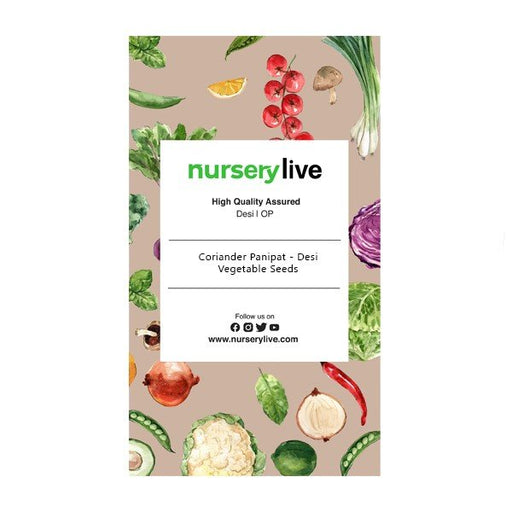
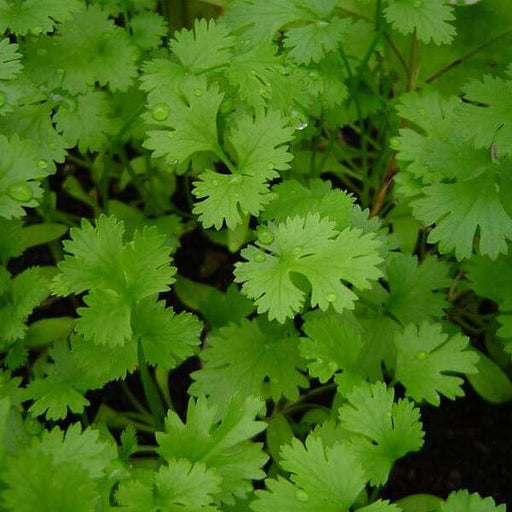 Save 25%
Save 25%
Coriander Panipat - Desi Vegetable Seeds Coriander Panipat is a premium variety of coriander seeds, cherished for its aromatic leaves and ...
View full details
 Save 25%
Save 25%
Cherry Tomato, Cherry Tomato Honey - Vegetable Seeds Discover the delightful world of Cherry Tomato Honey seeds, perfect for home gardener...
View full details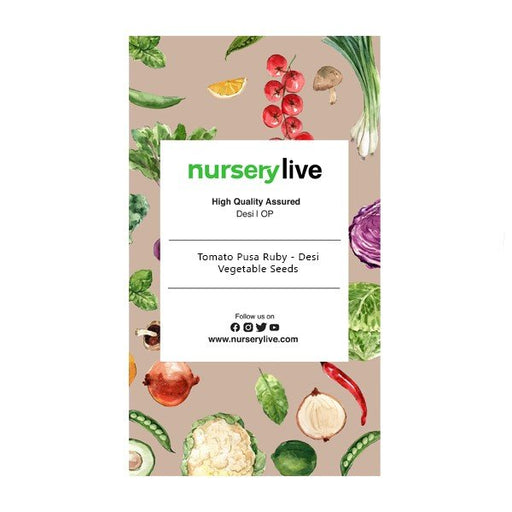
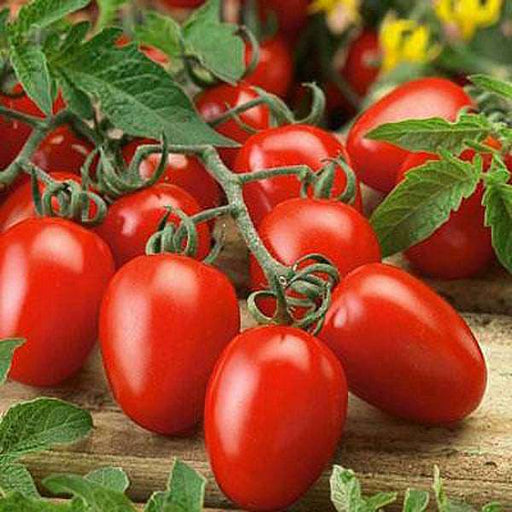 Save 25%
Save 25%
Tomato Pusa Ruby - Desi Vegetable Seeds The Tomato Pusa Ruby is a premium variety of tomato seeds, renowned for its vibrant red color, jui...
View full details
 Save 25%
Save 25%
Spinach All Green - Desi Vegetable Seeds Introducing the Spinach All Green - Desi Vegetable Seeds, a premium variety of spinach that thriv...
View full details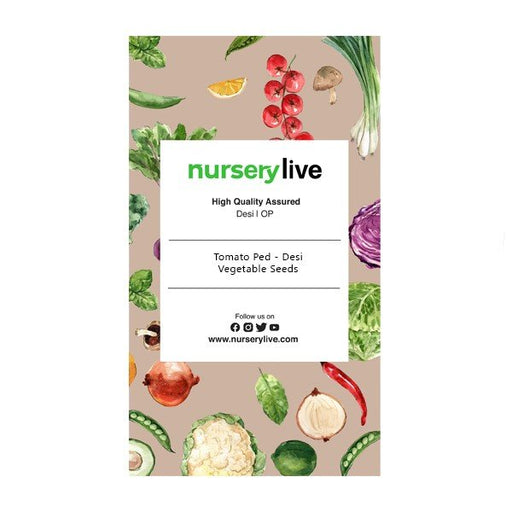
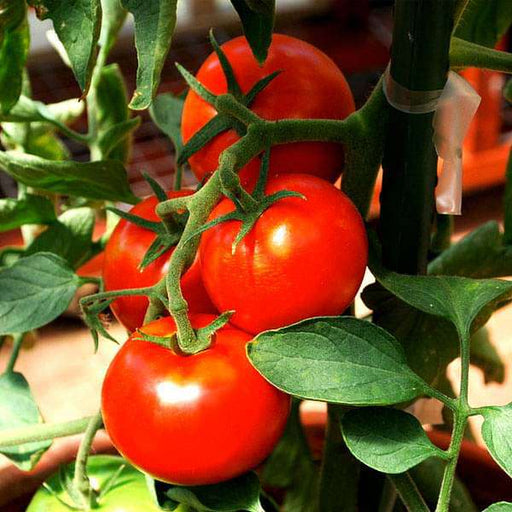 Save 25%
Save 25%
Tomato Ped - Desi Vegetable Seeds Introducing the Tomato Ped - Desi Vegetable Seeds, a premium selection of heirloom tomato seeds that pro...
View full details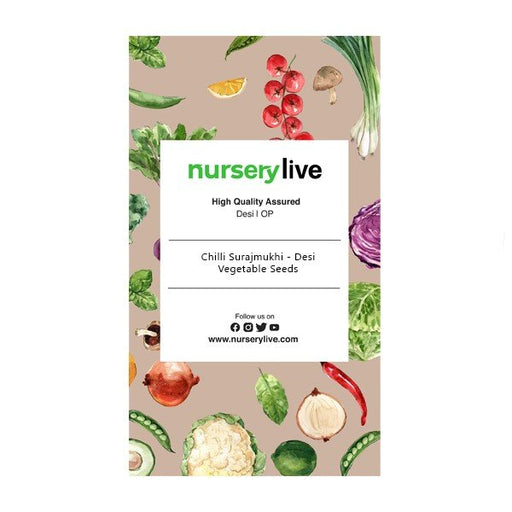
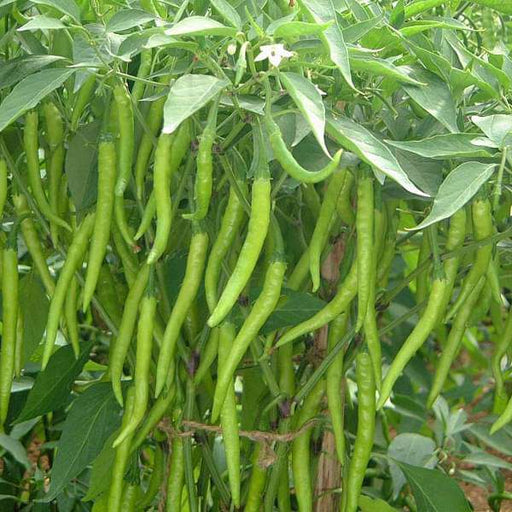 Save 25%
Save 25%
Chilli Surajmukhi - Desi Vegetable Seeds Introducing the Chilli Surajmukhi, a unique variety of desi vegetable seeds that brings a burst o...
View full details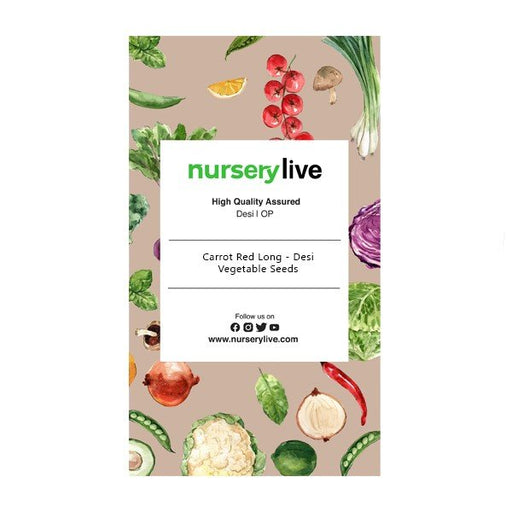
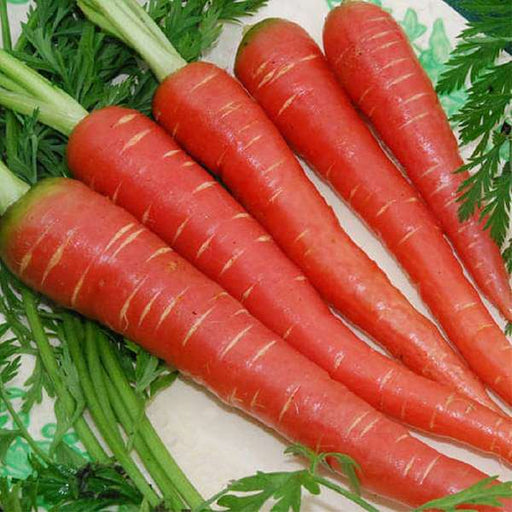 Save 25%
Save 25%
Carrot Red Long - Desi Vegetable Seeds Introducing the Carrot Red Long - Desi Vegetable Seeds, a premium variety known for its vibrant col...
View full details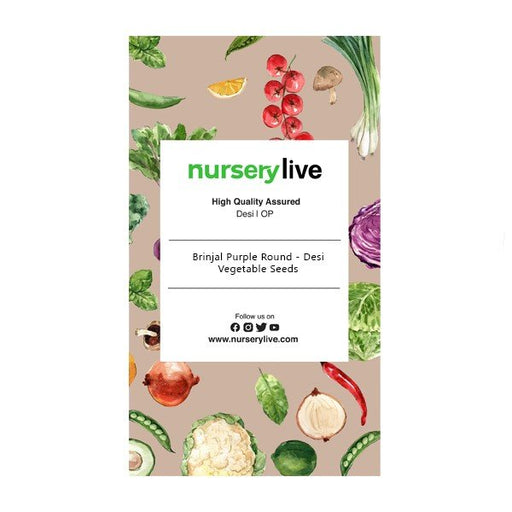
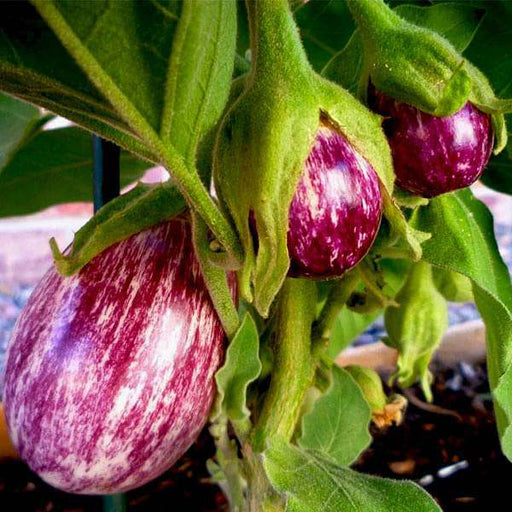 Save 25%
Save 25%
Brinjal Purple Round - Desi Vegetable Seeds Discover the rich flavors and vibrant colors of Brinjal Purple Round, a staple in Indian cuisi...
View full details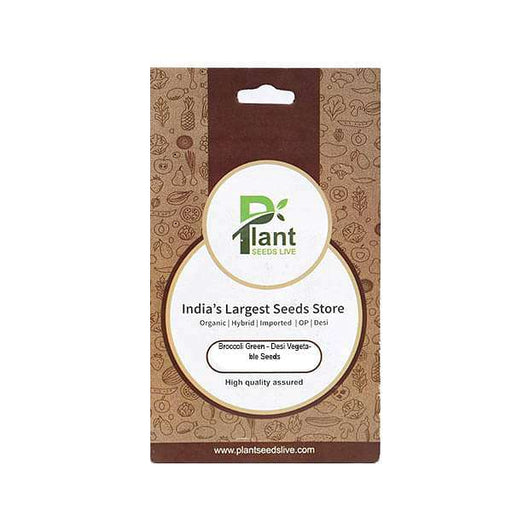
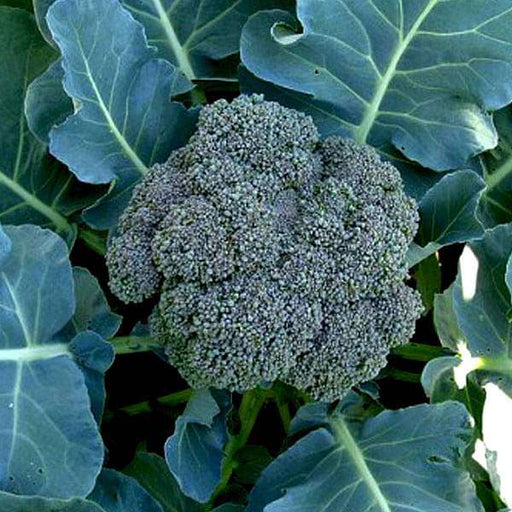 Save 25%
Save 25%
Broccoli Green - Desi Vegetable Seeds Discover the vibrant world of Broccoli Green with our premium Desi Vegetable Seeds. Known for its ri...
View full details
 Save 35%
Save 35%
Best 6 Plants for Perfect Indoor Garden Transform your living space into a lush oasis with our curated collection of the Best 6 Plants for a...
View full details
 Save up to 50%
Save up to 50%
Mini Succulent Garden Pack Transform your space with our Mini Succulent Garden Pack, featuring a delightful collection of 4 any variety beautiful s...
View full details
 Save 30%
Save 30%
5 Best Fragrant Plants Transform your garden or indoor space into a fragrant paradise with our curated selection of the 5 Best Fragrant Plants. Th...
View full details
 Save 24%
Save 24%
Set of 2 Bonsai Looking Grafted Adeniums Transform your indoor or outdoor space with our exquisite Set of 2 Bonsai Looking Grafted Adenium...
View full details Save 45%
Save 45%
Top 4 Die Hard Succulents Pack Transform your indoor or outdoor space with our Top 4 Die Hard Succulents Pack, featuring a curated selecti...
View full details
 Save 30%
Save 30%
5 Best Indoor Plants Pack Transform your living space into a lush oasis with our '5 Best Indoor Plants Pack.' This carefully curated collection fe...
View full details
 Save 25%
Save 25%
Set of 4 Evergreen Air Purifier Plant Pack Transform your indoor space into a lush, green oasis with our Set of 4 Evergreen Air Purifier Pla...
View full details| SrNo | Item Name |
|---|---|
| 1 | Artemisia Absinthium, Wormwood - 0.5 kg Seeds |
Discover the enchanting world of Artemisia Absinthium, commonly known as Wormwood. This perennial herb, renowned for its aromatic leaves and historical significance, is a must-have for any garden enthusiast. With its striking silvery-green foliage and unique flavor profile, Wormwood is not only a beautiful addition to your garden but also a versatile herb with a rich history in traditional medicine and culinary arts.
What makes Wormwood special is its role in the production of absinthe, a legendary spirit that has captivated artists and writers for centuries. Its distinct bitter flavor and aromatic properties have made it a staple in herbal remedies and cocktails alike. Cultivating Wormwood allows you to connect with this fascinating history while enjoying its many benefits.
One of the special features of Artemisia Absinthium is its ability to thrive in poor soil conditions, making it an excellent choice for sustainable gardening. This hardy plant is drought-resistant and attracts beneficial insects, contributing positively to your garden's ecosystem.
By growing Artemisia Absinthium, you contribute to biodiversity in your garden. This hardy plant supports local ecosystems by attracting pollinators and beneficial insects, promoting a healthier environment. Its drought-resistant nature also makes it an excellent choice for sustainable gardening practices, reducing the need for excessive watering.
If you think wormwood is just a fancy name for a cocktail ingredient, think again! This herb is a powerhouse of benefits, from aiding digestion to potentially warding off pesky parasites. It’s like having a tiny herbal superhero in your garden, ready to save the day with its bitter goodness. Plus, who wouldn’t want to impress their friends with tales of their very own wormwood plant?
Growing Artemisia Absinthium is like hosting a low-maintenance guest who thrives on neglect. This hardy perennial loves well-drained soil and a sunny spot, making it the perfect addition to your garden. Just plant the seeds, water occasionally, and watch as it flourishes into a bushy beauty. It’s the ultimate plant for those who want to feel like a gardening guru without the fuss.
Beyond its role in absinthe, wormwood has a plethora of uses that would make any herbalist swoon. From herbal teas to tinctures, this plant can be your go-to for natural remedies. It’s like having a Swiss Army knife in your herbal arsenal, ready to tackle everything from digestive woes to insomnia. Who knew a little green plant could pack such a punch?
Wormwood has a storied past that reads like a thrilling novel. Used in ancient medicine and even mentioned in the Bible, this herb has been a staple in various cultures for centuries. It’s the kind of plant that has seen it all, from ancient rituals to modern cocktails. Talk about a well-traveled herb with stories to tell!
Ah, absinthe—the green fairy that has captivated artists and writers alike. Wormwood is the star ingredient that gives this potent spirit its unique flavor and infamous reputation. It’s like the rebellious cousin of the herbal world, adding a touch of mystique to your drinking experience. Just remember, moderation is key unless you want to channel your inner Van Gogh!
If you’re looking for a brew that’s both bitter and beneficial, look no further than wormwood tea. This herbal infusion is not for the faint of heart, but it’s packed with potential health benefits. Sip it slowly and embrace the earthy flavors, knowing you’re indulging in a drink that has been cherished for centuries. It’s like a warm hug from Mother Nature—if Mother Nature had a penchant for bitterness.
The aromatic allure of wormwood essential oil is hard to resist. With its distinct scent and potential therapeutic properties, this oil can elevate your self-care routine to new heights. Just a few drops in a diffuser can transport you to a serene herbal oasis. It’s like having a spa day at home, minus the hefty price tag!
Incorporating wormwood into your garden is like adding a touch of whimsy to your landscape. Its silvery foliage and unique aroma can deter pests while attracting beneficial insects. It’s the perfect plant for those who want to keep their garden thriving without resorting to harsh chemicals. Plus, it’s a conversation starter—everyone will want to know about your enchanting wormwood!
If your stomach could talk, it might just ask for a little wormwood. Known for its digestive benefits, this herb can help ease bloating and discomfort. It’s like a gentle nudge for your digestive system, reminding it to get back on track. So, the next time you indulge a bit too much, consider reaching for some wormwood to restore balance.
Wormwood has been a staple in traditional medicine for centuries, often used to treat a variety of ailments. From fevers to digestive issues, this herb has earned its place in the herbal hall of fame. It’s like the wise old sage of the plant world, offering remedies that have stood the test of time. Who wouldn’t want a little wisdom in their herbal repertoire?
In the world of modern herbalism, wormwood is making a comeback. With a growing interest in natural remedies, this herb is being rediscovered for its potential health benefits. It’s like the cool kid in school who’s finally getting the recognition they deserve. So, whether you’re a seasoned herbalist or a curious newbie, wormwood is worth exploring.
Storing your wormwood seeds properly is crucial for future gardening success. Keep them in a cool, dry place, and they’ll be ready to sprout when the time is right. It’s like tucking away a treasure for a rainy day—just waiting for the perfect moment to shine. With a little care, your wormwood seeds will be the gift that keeps on giving!
Artemisia Absinthium, commonly known as Wormwood, is a perennial herb famous for its bitter taste and historical use in absinthe. This green beauty is not just a pretty face; it’s packed with essential oils and has been used in traditional medicine. So, if you’re looking to spice up your garden or cocktail, this is your plant!
Growing Wormwood from seeds is as easy as pie—if pie were a herb! Start by sowing the seeds in well-drained soil, ideally in spring. Keep them moist but not soggy, and watch them sprout like magic. With a little sunlight and love, you’ll have a thriving Wormwood plant in no time!
Wormwood loves to bask in the sun, so give it at least six hours of direct sunlight daily. It prefers well-drained soil and can tolerate poor conditions, making it the low-maintenance diva of the garden. Just remember, it’s drought-tolerant, so don’t drown it—this herb likes to keep things dry and breezy!
Absolutely! Wormwood adds a unique bitter flavor to dishes, but use it sparingly—this isn’t a herb you want to overdo. Think of it as the quirky friend at a dinner party; a little goes a long way. It’s great in sauces, marinades, and even some adventurous cocktails. Just don’t expect it to be everyone’s cup of tea!
Wormwood is safe in small amounts, but moderation is key! It contains thujone, which can be toxic in large doses. So, while it’s a fabulous addition to absinthe and herbal teas, don’t go chugging it like water. Always consult a healthcare professional if you’re unsure about its effects on your health.
Wormwood is like the superhero of herbs—resilient and tough! However, it can occasionally attract aphids or spider mites. Keep an eye out for these pesky intruders and treat them with insecticidal soap or neem oil. With a little vigilance, your Wormwood will remain the envy of the garden!
Harvesting Wormwood is a breeze! Snip the stems just above a leaf node when the plant is in full bloom, usually in late summer. This not only gives you fresh herbs but also encourages bushier growth. Just remember to leave some behind for the plant to thrive—sharing is caring, after all!
Yes, indeed! Wormwood can be a fabulous indoor companion. Just ensure it gets plenty of sunlight—south-facing windows are ideal. Use a pot with good drainage, and keep the soil slightly dry. With the right care, you’ll have a little green friend that not only looks good but also adds a touch of herbal flair to your home!
Wormwood has a long history in traditional medicine, often used for digestive issues and as a natural remedy for various ailments. It’s known to stimulate appetite and relieve bloating. However, always consult a healthcare professional before using it medicinally—after all, even herbal remedies need a little expert advice!
Absolutely! Wormwood is container-friendly and loves to strut its stuff in pots. Just ensure the container has good drainage and use quality potting soil. This way, you can enjoy its beauty on your patio or balcony. Plus, it’s a great conversation starter—who doesn’t love a plant with a bit of history
Patience is a virtue, my friend! Wormwood seeds typically take about 2 to 3 weeks to germinate. Keep the soil moist and warm, and soon you’ll see those little green shoots popping up. It’s like waiting for a surprise party—exciting and worth the wait when it finally happens!